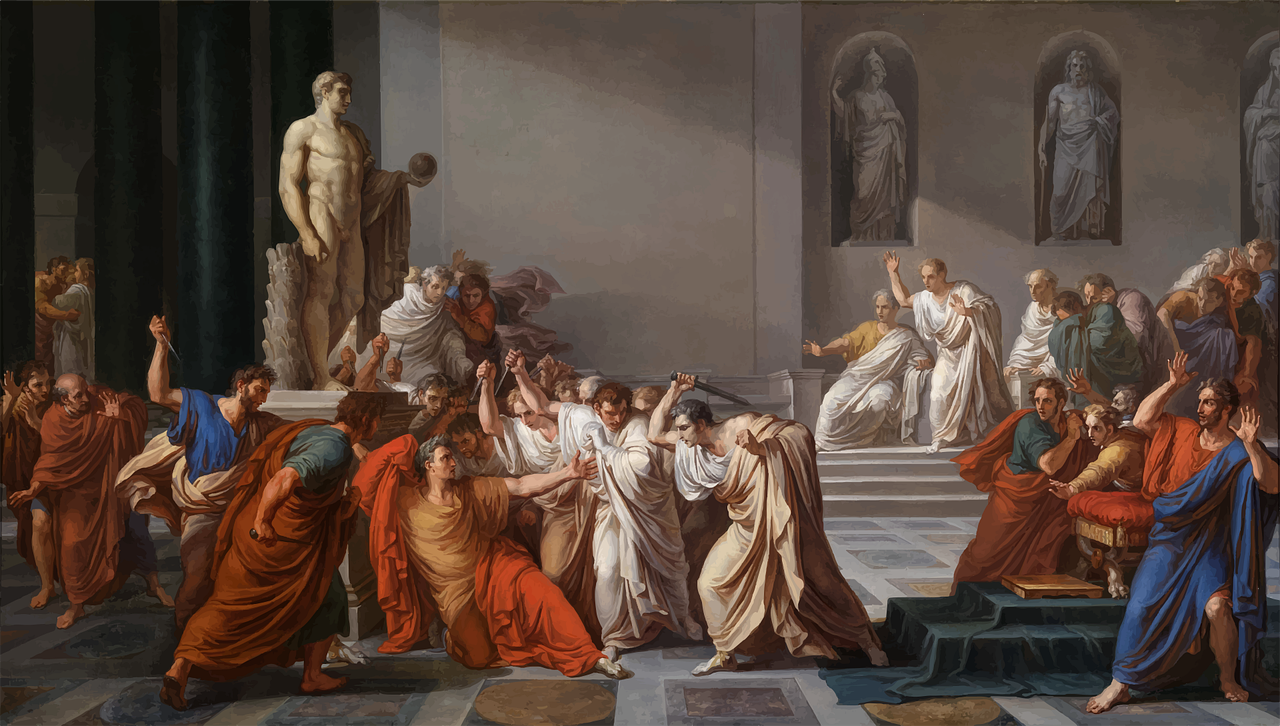Fickle

When looking through the streaming options of our local library I stumbled on a treasure trove. It seems they have the wonderful BBC productions of Shakespeare’s plays. I know I’m a bit of an outlier, but I like Shakespeare. For me, his language and artistry as a playwright are unmatched. But more than that, I appreciate his piercing understanding of all things human. He has an uncanny ability to depict the complexity of life, character and relationship in ways few have matched.
Having recently heard a quote from the play Julius Caesar, I decided on a whim to watch it again. I’d seen and read the script on several occasions. And in 10th grade, for English class, I’d even memorized Mark Antony’s famous speech. But, given the current American political climate, I guess I thought this work was the appropriate one to reconsider.
There is something intrinsically enjoyable about hearing familiar phrases in their context. And this play is packed full of them.
“Beware the ides of March.”
“Cry Havoc, and let slip the dogs of war.”
“Cowards die many times before their death; the valiant never tastes of death but once.”
“Et tu, Brute?”
“There is a tide in the affairs of men which, taken at the flood, leads on to fortune.”
Yet what captured my attention this time through the work were the orations of Brutus and Mark Antony. As I told my wife this morning, if I were in politics, I’d want Shakespeare as my speech writer. His understanding of rhetoric and the use of language for persuasion is genius.
The play is completely believable. The crowd, so persuaded by Brutus that Caesar deserved to die due to his attempts to subvert Rome’s democratic republic, nevertheless is turned 180 degrees like a school of herring confronted by a shark once Mark Antony gets wound up.
Who can forget Mark Antony’s opening line from that funeral pulpit: “Friends, Romans, Countrymen. I come to bury Caesar not to praise him.” Or his ironic reference to the assassins as “honorable men” which he repeats over and over. By the time Antony finishes reading Caesar’s will, the mob no longer sees the would be wrecker of the Republic as a threat to Rome, but rather as the best Rome ever produced.
Shakespeare doesn’t drift into the habit of lesser writers who paint things in black and white, with good guys and bad guys (though it is tough to see much good in Richard III). Indeed, it is never clear to the audience of Julius Caesar who to root for. Every major character is a complex combination of conflicting passions and motivations. But at any given time during the play, the crowd of plebians is uniformly convinced of the virtue of one side or the other. At times, they totally support Caesar. At times they support Brutus and Cassius. At times they support Antony and Octavius.
Why is the crowd so fickle? It seems clear from the play that Shakespeare would have us attribute the opinion of the mob to the eloquence of the most recent speaker. Can he be right?
In his Treatise on Rhetoric, Aristotle lays out basic principles for persuasion still taught today. I used to think most people were persuaded by reason, evidence, and careful argument alone. And, without doubt, they do play a role. Aristotle, along with Socrates and Plato, sought to ground persuasion in sound logic and dialectic.
In addition, Aristotle clearly identifies other factors. In Rhetoric he also noted that the perceived character of the speaker, his or her ethos, was extremely important. Unless the listener trusts the orator, not just as an expert but as a friend, he or she is unlikely to be taken seriously.
However, Aristotle clearly understood that perhaps the most important (and most dangerous) factor in persuasion is emotion (pathos). Only when the audience gets emotionally involved will they be persuaded.
Antony masterfully tapps the emotions of the crowd by uncovering the bloody corpse of Caesar and reminding those present of their mutual love. This is powerful stuff.
We are all prone to be led by our emotions. Rarely can the rational side of our brains do more than provide justification for what our hearts have already decided. So how do we protect ourselves from the many who would seek to manipulate us into chasing ideas and plans which run counter to our best interests?
For me, the key is to guard my heart. As Proverbs says, “Guard your heart above all else, for it determines the course of your life.” (Proverbs 4:23, NLT).
Since my youth I have given my life to Jesus. He is the love of my life. I have regularly bathed in the Gospels to learn all I can about how to love Him better. What does He like? What thoughts and behaviors will give Him pleasure? What does it mean to follow Him? How can I help Him build His Kingdom?
By making Christ preeminent in my heart and avoiding anything that takes me in a direction opposite of His passionate desires, I believe I am building a defence against those who would drag me in unhelpful directions.
So guard your hearts!

